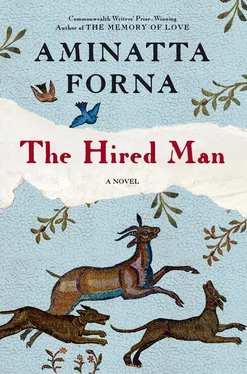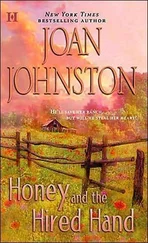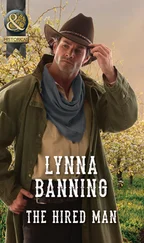Some time ago Fabjan had installed a satellite dish, quite likely illegally. Since the days of the pinball machine there had been continual upgrades at the Zodijak. On big-match days the place was packed. Today CNN was on: fires in Greece, the government has declared a state of emergency. Fifty-three people missing. Pictures of burned-out villages, burned-out cars, all of which looked very familiar. Evacuation helicopters. A statue of a winged god or perhaps an angel, blurred by smoke, flames visible in the near distance. There followed a feature about a member of the Ku Klux Klan convicted by a Mississippi jury of kidnapping and killing two black teenagers. The murders took place back in 1964, when the state was segregated, three years after I was born. James Ford Seale. On the screen a photograph of him as a young man, movie star handsome. Pictures of him being led into court: orange jumpsuit, wire-framed glasses, age spots. Happy black folk outside the court waving a placard: Forty Years On . The brother of one of the murder victims, according to the words running below the pictures, was the one who had tracked the old man down.
I sipped my wine and checked the football scores on the back of Fabjan’s newspaper until he put it down, possibly to spite me. I made some conversation about the football. He was no more in the mood for talking than on any other day. He answered me in monosyllables as he went through receipts in his wallet. I sipped more of my wine and counted the minutes.
This is what happened:
Some time between six thirty and seven Laura drove by in the Fićo. One or two people noticed the car, I’ve already told you they are quite rare these days. Even I can’t remember when I last saw one on the road. You see them dumped outside people’s houses, all rusted up. But also, and I’ve told you this too, in some quarters the cars were gaining a little cachet. So when Laura drove right through the middle of town in the Fićo some people’s attention was caught by the small red car. In the Zodijak a man at the table behind me said to his companion, ‘Would you look at that?’ (The guy from the municipal offices again.) His companion twisted round to see what he was talking about.
‘Now I had one of those. My first car. Loved it like my life.’
‘I had one. My brother’s first. He gave it to me when he went abroad.’
‘Mine was white, I put black stripes on the bonnet, like in that film The Italian Job .’
‘Those were Minis.’
‘I know.’
‘Had to keep the back open to stop the engine overheating.’
‘Drove it everywhere. Reinforced the roof to take more weight.’
The girl, who was serving them beer, said, ‘My uncle had a car just like that. He lived in Novigrad.’ Some of the other drinkers started talking about the cars: the limited choice of colours, advantages over the Fiat 600 and vice versa, the eighty kilometres per hour top speed. Someone claimed to have made eighty-six in theirs. Not a single person had not, at one time or another, owned or known one of these cars.
Fabjan looked up from the contents in his wallet. He turned his head to see what people were looking at, his great bull neck made it a slow movement. Laura was parking the car on the opposite side of the road. I kept a silent eye on Fabjan who watched with nothing more than casual interest much in the same way the two men and the waitress did.
Maybe if it had not been for what happened in K— just a couple of weeks before, which had everybody talking, already thinking the thoughts they tried not to think, that and the restoration of the mosaic and the fountain. Word had got around. The nerves of the town were close to the surface. The waitress was the only person to whom none of this meant anything and I wonder to this day what she thought about the way all the men around her went silent and stared at this woman in a red hat, stepping out of a small red car. This woman who was at least twenty years older than her, with short dark hair, the men were staring at her as if they’d never seen the like. The waitress, pretty and blonde, glanced around at the men and at Fabjan who was sitting with his hand (holding a receipt) frozen in mid-air and flounced back inside to the bar. Finally, Fabjan swallowed.
What stillness that evening, it lay over the town. All that moved was Laura, trailing a storm in her wake. Imagine: Laura in her red hat and the sunglasses she wore against the low evening sun, moving through the town, visiting shops to pick up whatever she’d come into town for. Did she even notice the long looks? The exchanged glances? And if she did, did she ask herself what it was all about? I don’t imagine so: knowing Laura, she would have swung through the town thinking only about what she had to do, crossing the errands off her list and enjoying the evening sun on her face.
In the bakery (which opens for a few hours on a Sunday) all talk was of the night before. I’d made sure to stop by for a pastry for my breakfast, something I did occasionally. Those who had seen the woman in the red hat who drove the little Fićo told those who hadn’t all about it. Details were added: the woman wore a necklace made of pottery beads, she spoke English but something in her accent made it sound as if this wasn’t her native tongue; it was as if she understood what people around her were saying. It was the same woman who took over the blue house a month ago now; it wasn’t the woman who had taken over the blue house, though she looked like her, this was a different woman. The woman was in her thirties; the woman was in her forties. It was claimed she asked directions to a house in Gost. Descriptions of her outfit varied: some said she was wearing a smock, others jeans. I know that Laura was wearing her denim skirt, a blouse tied at the waist and espadrilles, because it is my favourite outfit of hers.
Three details remained consistent: that the woman had short dark hair and wore a red hat. That the car was a red Fićo.
Later that day I was having a drink in the Zodijak. Perhaps I should have avoided the place for a while, but I was enjoying the atmosphere in town since Laura’s jaunt and I wanted to savour it. Anyway, it was Sunday and Fabjan was with his family, at least I assume he was. I bought a glass of wine and sat at the front of the bar; the evening was pleasant, cooler than it had been. The sky was filled with starlings the way it had been the evening of the day I first met Laura. You remember I’d stopped for a drink there and then seen Krešimir passing by with his shopping and invited him for a drink. I mention the starlings for no reason except that they were there, carving patterns in the sky as they so often did. It meant a hawk or a kestrel was somewhere around. I was watching them much the way I did the time before and when I looked down I again saw Krešimir, only this time he wasn’t walking past on the other side of the road carrying his shopping home, this time he was storming across the road towards me. It gave me a thrill to see him so angry; my heart quickened because Krešimir in a rage is capable of anything. I curled my fingers around my glass of wine.
‘What the fuck do you think you’re doing?’
I stayed calm. The stakes we were playing for were rising and I needed to keep sight of the end game. I looked at him, I didn’t answer, though I may have blinked, with a kind of surprise. ‘What the fuck do you think you’re playing at?’ He was practically foaming at the mouth. Nobody looked up. Around us the other drinkers stared into their glasses, or at the street ahead, or up at the television above the bar.
I said, ‘I don’t know what you’re talking about.’
‘You’d better put a stop to this shit, all this shit. I’m warning you.’
‘What shit are you talking about?’
Читать дальше












